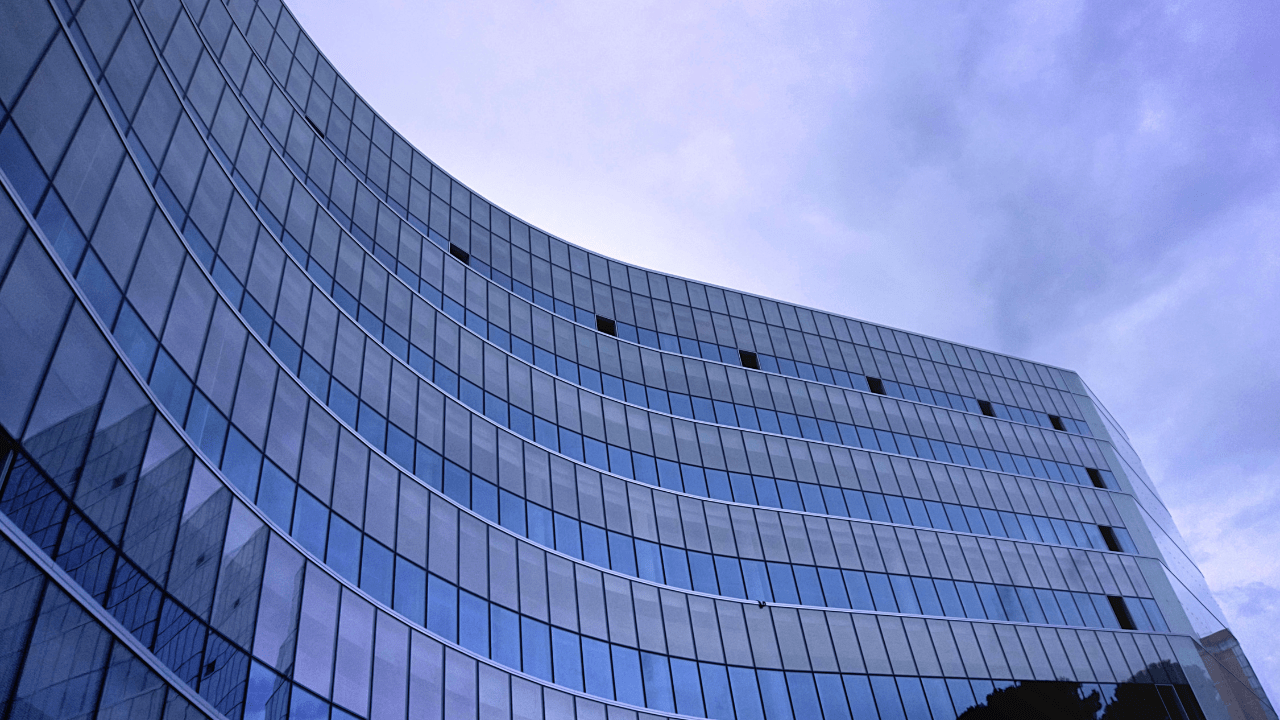Address: Front office : Twin Centre Tower A 6th floor Corner boulevard zerktouni and boulevard El Massira Casablanca Back office : espace ghazwani, Boulevard Ifni, Casablanca
Opening hours :Mon - Fri: 9am-12.30pm and 2pm-6pm Sat: 9am-12pm


Rate this article
6/ (99 votes )
Are you interested in starting a business in Morocco? The North African country is known for its diverse population, vibrant culture, and strong economy. Most notably, Morocco is known for its booming tourism and agriculture industries. Plus, its proximity to Europe, the Middle East and Africa also makes it an attractive destination for companies looking to expand their operations. For all these reasons, many entrepreneurs, companies, and investors consider Morocco as an excellent option for business set up, and are ready to dive into the opportunity. But before rolling ahead with their plans, all those looking to set up their business in the country must understand the basic requirements for Morocco company formation and follow the process step-by-step. In this blog, we will discuss all the formalities one has to go through to form a business in Morocco, from figuring out the type of business entity to applying for a trade license and so forth. So let’s get started.
Morocco, a captivating North African nation, is a kaleidoscope of cultures, traditions, and landscapes. This diverse country, nestled between the Atlantic Ocean, the Mediterranean Sea, and the Sahara Desert, boasts a rich history and an intriguing melange of Arabic, Berber, and European influences. This article offers a quick overview of Morocco, covering its history, culture, cuisine, and top attractions.
Morocco’s history dates back to ancient times, with the region being inhabited by Berber tribes for thousands of years. Throughout its history, Morocco has witnessed the rise and fall of various empires, such as the Phoenicians, Carthaginians, Romans, and Byzantines. The country came to prominence under the Islamic rule of the Arab Umayyad dynasty in the 7th century. Over time, it established its identity as an independent nation through a series of indigenous Berber and Arab dynasties, the most notable being the Almoravids, Almohads, Marinids, and Saadis. The Alaouite dynasty, which still reigns today, came to power in 1666. Morocco was a French protectorate from 1912 until gaining independence in 1956.
Moroccan culture is a rich tapestry of Arab, Berber, and European influences. The official languages are Arabic and Amazigh (Berber), but French is widely spoken as a legacy of colonial rule. Islam is the dominant religion, shaping the country’s customs, architecture, and daily life. Moroccan society places great emphasis on family, hospitality, and generosity. Traditional arts, such as pottery, weaving, and leatherwork, are highly valued, and age-old craftsmanship techniques are still practiced today.
Moroccan cuisine is a delightful fusion of Berber, Arabic, and Mediterranean flavors. Its distinctiveness comes from the use of fragrant spices like cumin, ginger, saffron, and cinnamon. Some of the country’s most famous dishes include couscous, tagine, bastilla, and harira. Mint tea, often referred to as “Moroccan whiskey,” is the national drink and a symbol of hospitality.
Morocco offers a wealth of attractions for visitors, ranging from ancient cities to stunning natural landscapes.
Marrakech – The bustling city of Marrakech enchants visitors with its vibrant markets, historical palaces, and the iconic Jemaa el-Fnaa square, teeming with performers and food stalls.
Fes – This ancient city is renowned for its well-preserved medieval architecture, including the world’s oldest functioning university, Al Quaraouiyine.
Casablanca – Morocco’s largest city is home to the magnificent Hassan II Mosque, one of the largest mosques in the world.
Chefchaouen – Known as the “Blue Pearl,” this picturesque town in the Rif Mountains is famous for its blue-painted buildings and relaxed atmosphere.
Sahara Desert – A visit to the Erg Chebbi or Erg Chigaga sand dunes offers a quintessential Moroccan experience, complete with camel rides and breathtaking sunsets.
The Atlas Mountains – These majestic mountains are popular for trekking, with highlights including the Toubkal National Park and the scenic Ourika Valley.
Essaouira – This coastal city, with its UNESCO-listed medina and windswept beaches, is a haven for artists, musicians, and water sports enthusiasts.
In recent years, Morocco has emerged as a significant business hub in North Africa, offering a plethora of opportunities for entrepreneurs and investors alike. The country has experienced considerable economic growth and stability, making it an attractive destination for starting a business. This article delves into the top reasons why starting a business in Morocco is a wise and promising decision.
Morocco’s strategic location at the crossroads of Europe, Africa, and the Middle East offers businesses excellent access to international markets. The country serves as a gateway to the African continent, while also maintaining strong ties with European and Middle Eastern countries. This geographical advantage enables businesses to tap into diverse markets and resources, expanding their global reach.
Morocco has enjoyed political stability over the years, which has contributed to a favorable business environment. The government has made significant efforts to attract foreign investment and foster entrepreneurship through various initiatives, such as simplifying business registration procedures, offering tax incentives, and improving access to financing. These measures have helped create a conducive atmosphere for businesses to flourish.
Morocco has been experiencing steady economic growth, thanks in part to its diversified economy. Industries such as automotive, aerospace, agriculture, and renewable energy have all seen significant growth in recent years. This robust economic landscape makes it an ideal location for investors seeking new and exciting opportunities.
Morocco has a young, skilled, and affordable workforce, with nearly half of its population under the age of 25. The government’s emphasis on education and vocational training has equipped the labor force with the necessary skills to contribute to the growing economy. This talented pool of workers provides businesses with a competitive edge in the global market.
The Moroccan government has invested heavily in infrastructure projects, improving road networks, airports, seaports, and rail connectivity. This has significantly enhanced the country’s logistics capabilities and transportation efficiency, making it easier for businesses to access regional and international markets.
Morocco has made substantial progress in transitioning to renewable energy sources, with ambitious goals to derive 52% of its electricity from renewable sources by 2030. This focus on clean energy has created a booming market for businesses in the renewable energy sector, presenting lucrative investment opportunities.
Morocco has signed numerous free trade agreements with various countries and economic blocs, including the European Union, the United States, and several African nations. These agreements allow businesses in Morocco to benefit from reduced tariffs and easier access to international markets, further boosting their growth potential.
Starting a business in Morocco offers a multitude of advantages, from its strategic location and political stability to its skilled workforce and robust infrastructure. As the country continues to strengthen its position as a regional business hub, entrepreneurs and investors can seize the opportunity to establish successful ventures in this thriving environment. With its diverse economy, government support, and access to international markets, Morocco is undoubtedly an ideal destination for businesses looking to expand their horizons.
starting business in morocco ,nvolves multiple steps, and one of the most important aspects is understanding the company formation requirements. This process entails registering your company as a legal entity and meeting specific regulations set by the jurisdiction where you intend to operate. This article aims to provide an in-depth analysis of the company formation requirements and how you can navigate through the process to create a unique, legally-compliant business.
Morocco is an attractive destination for entrepreneurs and investors seeking to establish businesses in a dynamic and diverse economy. Understanding the various types of business entities available in Morocco is essential to choosing the right legal structure for your venture. This article will provide an overview of the different business entities in Morocco, helping you make an informed decision for your unique business needs.
Sole Proprietorship (Entreprise Individuelle)
A sole proprietorship is the simplest business structure in Morocco, suited for entrepreneurs who want to start a small-scale business. In this structure, the business owner has full control over operations and is personally responsible for any liabilities. The formation process is relatively simple and requires minimal formalities. However, this structure does not offer limited liability protection, meaning the owner’s personal assets are at risk in case of business debts or legal disputes.
General Partnership (Société en Nom Collectif – SNC)
An SNC is a partnership where two or more individuals join forces to conduct business. All partners are jointly and severally liable for the partnership’s debts and obligations, meaning their personal assets can be seized to cover the company’s liabilities. An SNC does not have a separate legal personality and requires a partnership agreement to define partners’ rights and obligations.
Limited Partnership (Société en Commandite Simple – SCS)
An SCS is a partnership with two types of partners: active partners (commandités) who manage the business and have unlimited liability, and limited partners (commanditaires) who only contribute capital and have liability limited to their investment. An SCS is suitable for businesses where investors want to participate financially without taking an active role in management.
Limited Liability Company (Société à Responsabilité Limitée – SARL)
A SARL is the most popular business structure in Morocco, offering limited liability protection to its shareholders. A SARL requires at least one shareholder and can have up to 50. Shareholders’ liability is limited to their investment in the company, and the business is considered a separate legal entity. The management of a SARL can be carried out by one or more managers (gérants), who can be appointed from among the shareholders or externally.
Public Limited Company (Société Anonyme – SA)
An SA is a larger business structure suitable for medium to large-sized businesses, allowing for public investment. It requires a minimum of five shareholders and a minimum share capital of MAD 300,000 (about USD 30,000). Shareholders’ liability is limited to their investment in the company, and the business has a separate legal personality. An SA is managed by a board of directors, and it is subject to more stringent regulations and reporting requirements compared to a SARL.
Limited Partnership by Shares (Société en Commandite par Actions – SCA)
An SCA is a hybrid business structure that combines elements of an SCS and an SA. It has two types of partners: active partners (commandités) with unlimited liability and limited partners (commanditaires) whose liability is limited to their investment in the company. The management of an SCA is carried out by one or more active partners or managers. The company must have a minimum share capital of MAD 300,000 (about USD 30,000) and can issue shares to the public.
Choosing the right business entity is crucial for the success of your venture in Morocco. It is essential to consider factors such as the size of your business, the extent of personal liability protection desired, and the level of management and regulatory complexity. By understanding the various business structures available, you can select the most suitable option for your unique business needs, ensuring a strong foundation for your enterprise in Morocco
Establishing a business in Morocco offers a wealth of opportunities for entrepreneurs looking to venture into the African market. As with any jurisdiction, Morocco has specific requirements for company formation, which include submitting necessary documents to the appropriate authorities. This article provides a comprehensive guide on the essential documents you need to prepare when setting up a company in Morocco.
Before registering your company in Morocco, you must first reserve a unique business name. To do this, you will need to obtain a Certificate of Name Reservation from the Regional Investment Center (CRI). This certificate confirms that your chosen name is not already in use and meets the country’s legal requirements.
The statutes of the company, or Articles of Association, outline the company’s purpose, share capital, and shareholders’ rights and obligations. These documents must be drafted in compliance with Moroccan commercial law and notarized by a public notary.
The founders’ declaration is a signed document that states the company’s capital, the number of shares, and the shareholders’ names and contributions. This document must be notarized and submitted to the CRI.
Before registering your company in Morocco, you must deposit a portion of the share capital in a bank account opened under the company’s name. Upon completing this step, the bank will issue a deposit certificate, which serves as proof of the capital contribution.
To officially register your company, you must submit the necessary documents, including the statutes of the company, founders’ declaration, and deposit certificate, to the Commercial Register at the CRI. Once your application is approved, you will receive a Business Registration Certificate.
After registering your company with the Commercial Register, you must obtain a tax identification number from the Regional Tax Office (Direction Générale des Impôts). This number is crucial for filing taxes and conducting business in Morocco.
Companies in Morocco are required to register with the National Social Security Fund (Caisse Nationale de Sécurité Sociale, CNSS) to ensure compliance with social security and employee benefits regulations. Upon registration, the CNSS will provide you with a social security identification number.
Depending on your company’s industry, you may need to obtain specific licenses or permits to operate legally in Morocco. These can include import/export licenses, health and safety permits, or industry-specific authorizations. It is crucial to research and obtain all necessary licenses before commencing business operations.
To successfully establish a company in Morocco, you must ensure that you have all the required documents prepared and submitted to the relevant authorities. By reserving a unique business name, drafting the company’s statutes, registering with the Commercial Register, and obtaining tax and social security registrations, your business will be compliant with Moroccan law. Don’t forget to research and obtain any additional licenses or permits specific to your industry to guarantee smooth business operations in the country.
Morocco offers a thriving business environment that attracts both local and international investors. Establishing a Moroccan business can provide access to a growing economy, strategic location, and a diversified market. This article aims to provide a comprehensive understanding of who can establish a Moroccan business and the requirements that need to be met, ensuring a unique and legally-compliant enterprise.
Moroccan citizens have the right to establish businesses in the country, provided they meet the legal and regulatory requirements. Some key stepsresidents for Moroccan nationals to start a business include:
a. Choosing the appropriate business structure (e.g., sole proprietorship, partnership, limited liability company, or corporation)
b. Registering the business name and obtaining necessary licenses and permits
c. Complying with tax and social security regulations
Foreign investors can establish businesses in Morocco, benefiting from the country’s favorable investment climate and business-friendly regulations. Foreigners can create companies in various industries, subject to certain conditions and limitations.
To start a business in Morocco as a foreign investor, the following steps must be followed:
a. Obtain a foreign investor registration number from the Moroccan Investment Development Agency (AMDI)
b. Choose the appropriate business structure, which may include a limited liability company, a corporation, or a branch of a foreign company
c. Register the business name and file necessary documents, such as the Articles of Association or Articles of Incorporation
d. Obtain necessary licenses, permits, and authorizations as required by the specific industry
e. Comply with tax and social security regulations, as well as any other sector-specific requirements
A combination of Moroccan nationals and foreign investors can jointly establish businesses in Morocco, leveraging the unique skills, experiences, and resources of each party. This collaboration can enhance the growth potential of the company while fostering international business relationships.
For a partnership between Moroccan nationals and foreign investors, the following steps must be followed:
a. Determine the ownership and management structure, ensuring compliance with Moroccan investment regulations
b. Register the partnership as a legal entity, such as a limited liability company or a corporation
c. File necessary documents, including the partnership agreement, Articles of Association, or Articles of Incorporation
d. Obtain necessary licenses, permits, and authorizations for the specific industry
e. Comply with tax, social security, and other relevant regulations.
Moroccan businesses can be established by a wide range of individuals, including Moroccan nationals, foreign investors, or partnerships between the two. By understanding the unique requirements and regulations for each type of investor, you can create a legally-compliant and successful Moroccan business. Remember to consult local authorities and legal professionals to ensure adherence to all necessary requirements and regulations specific to your industry and business structure.
Morocco has a stable and growing economy, making it a suitable environment for businesses to thrive. The country’s economic development strategy focuses on diversifying its industrial base, promoting small and medium-sized enterprises, and attracting foreign investments. Sectors such as tourism, renewable energy, agriculture, and automotive manufacturing have witnessed significant growth in recent years, presenting ample opportunities for business expansion.
The Moroccan government has implemented various policies and reforms to create a favorable business climate for both local and foreign investors. These measures include streamlining business registration procedures, offering tax incentives, and providing support to small and medium-sized enterprises. In addition, Morocco has entered into multiple bilateral and multilateral trade agreements to facilitate commerce and investment.
Morocco boasts a diverse and skilled workforce, providing companies with a competitive edge in the labor market. The country’s educational system, including a growing number of higher education institutions and vocational training programs, ensures that businesses have access to qualified professionals across various sectors. Additionally, the multilingual nature of the Moroccan workforce, with proficiency in languages such as Arabic, French, and English, makes communication with international partners and customers more manageable.
Setting up and operating a business in Morocco is cost-effective compared to many European and North American countries. Labor costs are relatively low, and the cost of living is generally affordable, reducing the financial burden on businesses. Moreover, the country offers competitive utility rates and reasonably priced office and industrial spaces, contributing to reduced operational expenses.
The Moroccan government provides several investment incentives for businesses operating in the country, particularly in designated free trade zones and special economic areas. These incentives include tax exemptions, reduced customs duties, and simplified administrative procedures, creating an attractive environment for foreign investment.
Morocco has made significant investments in developing its infrastructure, including modernizing its transportation system, expanding its port and airport capacities, and improving its telecommunications networks. This ongoing infrastructure development supports business operations and enhances the country’s overall competitiveness.
The benefits of company formation in Morocco are numerous, ranging from its strategic location and growing economy to its favorable business climate and skilled workforce. Combined with cost-effective operations, investment incentives, and improved infrastructure, Morocco presents an appealing destination for entrepreneurs and investors looking to establish a business presence in North Africa and beyond. It is essential, however, to thoroughly research and consult with local professionals to ensure your company complies with Moroccan regulations and maximizes the potential benefits of this vibrant business environment.
Morocco has emerged as a promising destination for entrepreneurs seeking to establish their businesses in a growing economy. The country offers an attractive business environment, with access to regional markets and a government committed to supporting foreign investments. In this article, we will discuss the key steps to take when starting a business in Morocco to help ensure a smooth and successful setup.
Begin by conducting thorough market research to understand the local business landscape and identify opportunities that align with your expertise and interests. Analyze the competition, target audience, and regulatory framework to tailor your business strategy accordingly. Once you have a clear understanding of the market, develop a comprehensive business plan outlining your objectives, marketing strategies, and financial projections.
When starting a business in Morocco, you must select a branch office and an appropriate legal structure for your company. The most common forms of business entities in Morocco include:
a. Sole Proprietorship (entreprise individuelle) b. Limited Liability Company (société à responsabilité limitée, or SARL) public limited companies (société anonyme, or SA) d. Simplified Joint Stock Company (société par actions simplifiée, or SAS)
Each structure has its benefits and requirements, so carefully consider the best option for your business needs.
Choose a unique company name that reflects your brand and complies with Moroccan naming regulations. You will need to submit a name reservation application to the Regional Investment Center (CRI) to ensure your desired name is available and to reserve it for your use.
Depending on the chosen business structure, you will need to prepare and file appropriate legal documents, such as the articles of association, with the CRI. These documents provide information about your company, including its name, business activities, shareholders, and capital structure. It’s advisable to consult a legal expert to ensure the documents are prepared and filed correctly.
All businesses in Morocco must obtain an ICE, which serves as the company’s unique tax identification number. You can apply for an ICE at the CRI during the company registration process.
Open a corporate bank account in Morocco to manage your company’s finances. You will need to provide the bank with your company’s registration documents, tax identification number, and other required information. Once your account is set up, deposit the required minimum capital, as specified by your chosen business structure.
Register your company with the National Social Security Fund (Caisse Nationale de Sécurité Sociale, or CNSS) to comply with Moroccan labor laws and regulations. This registration ensures that your employees receive appropriate social security benefits and allows you to manage payroll deductions.
Depending on your business activities, you may need to obtain specific licenses or permits to operate legally in Morocco. These could include health and safety certifications, professional licenses, or environmental permits. Ensure that you research and secure all necessary licenses before commencing your business operations.
Starting a business in Morocco involves several key steps, including researching the market, choosing a legal business structure, registering your company name, preparing legal documents, obtaining a tax identification number, opening a bank account, registering with the social security office, and securing necessary licenses and permits. By following these steps and consulting with local experts, you can successfully establish your business in this dynamic and growing economy.
To start a company in Morocco, you should follow these general steps: a. Choose a company name and verify its availability b. Register your company with the Regional Investment Center (CRI) c. Obtain a certificate of incorporation d. Open a company bank account and deposit initial capital e. Register with the Tax Authority and obtain a tax identification number f. Register with the National Social Security Fund (CNSS) for employee social security g. Obtain any required licenses or permits for your specific industry
The most common legal entities in Morocco are: a. Sole Proprietorship (Auto-Entrepreneur) public limited company (SARL) c. Joint Stock Company (SA) d. Partnership Limited by Shares (SCA) e. General Partnership (SNC) f. Limited Partnership (SCS)
The minimum share capital requirements depend on the type of legal entity: a. SARL: MAD 10,000 (approximately USD 1,000) b. SA: MAD 300,000 (approximately USD 30,000) for a privately held company and MAD 3,000,000 (approximately USD 300,000) for a publicly held company c. SCA, SNC, and SCS do not have minimum share capital requirements.
Registration usually requires 1-3 weeks, depending on the legal organisation chosen and the complexity of the business. It may take more time if extra licences or permits are essential.Registration usually requires 1-3 weeks, depending on the legal organisation chosen and the complexity of the business.
No, foreigners can initiate and own wholly a business in Morocco. However, having a local associate might be advantageous in recognising the local commercial civilisation and managing official processes.
Corporate tax rates in Morocco depend on the company’s net income: a. 10% for net income up to MAD 300,000 b. 20% for net income between MAD 300,001 and MAD 1,000,000 c. 31% for net income exceeding MAD 1,000,000
There are additional taxes and duties to be aware of, such as Value Added Tax (VAT), payroll taxes, and local taxes.
Morocco offers various incentives for foreign investors, including tax exemptions or reductions, customs duty exemptions, and investment grants. These incentives are usually available for investments in specific industries or regions, such as renewable energy, agriculture, and export-oriented industries.
Getting residency in Morocco will depend on your specific situation and purpose for residing in the country. However, generally, the process for obtaining residency in Morocco involves the following steps:
Determine the type of residency you need: Morocco offers different types of residency permits, such as student visas, work permits, retirement visas, and investment visas. You will need to determine the type of visa that applies to your situation.
Gather the required documentation: Once you know the type of visa you need, you will need to gather the required documentation. This may include a passport, application form, proof of financial means, criminal background check, and other relevant documents.
Submit your application: You can submit your application at the nearest Moroccan embassy or consulate in your home country. You will need to pay the applicable fees and wait for a response.
Obtain a residence permit: If your application is approved, you will be issued a residence permit, which you will need to pick up in Morocco. You will need to go through a medical examination and provide additional documentation to obtain your residence permit.
It’s important to note that the process for obtaining residency in Morocco can be lengthy and complicated, so it’s recommended that you contact the assistance of a qualified immigration lawyer or consultant to guide you through the process.
Always contact a local legal expert services or business consultant services to ensure you are up to date with the latest regulations and processes when starting a company in Morocco.
Take the first step today and get your free consultation now! Unlock the potential for success for your new business in Morocco.
Request a free quote now !



